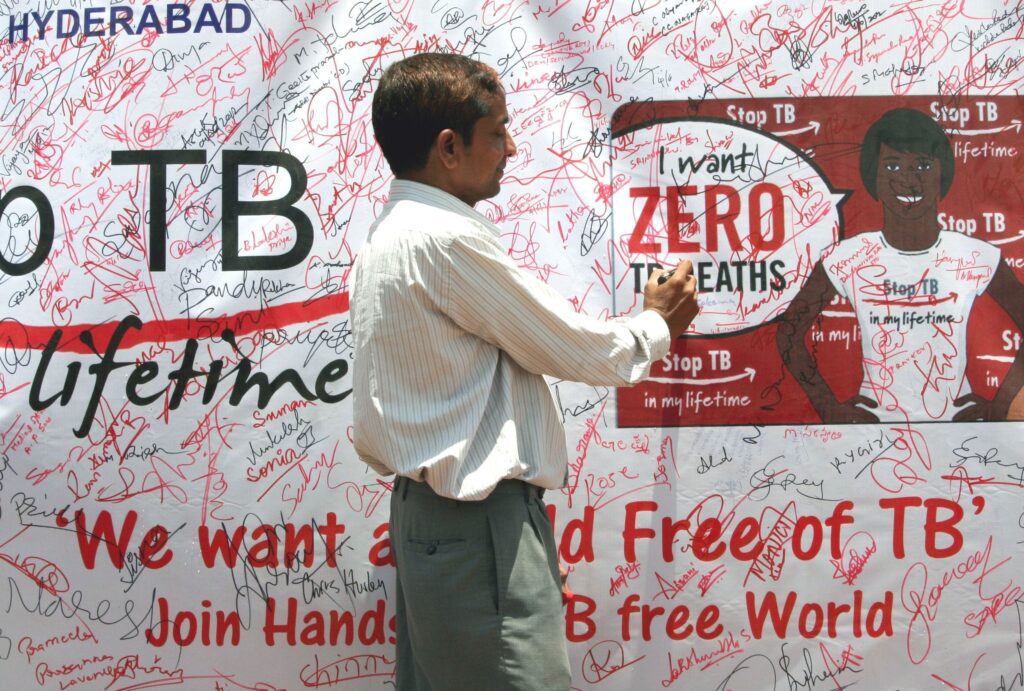
On February 4th, many attended a two-day gala organised by an MP. Attendees hailed from diverse backgrounds. Four different countries were represented at the gala. 61 political leaders were in attendance. Actors, experts and survivors all descended. What brought these many different stratas of the Indian – and, indeed, international – community together was a shared goal: a TB-free India.
“India is home to the world’s largest epidemic of TB and tops the list of the number of TB deaths by country…causing concern that progress towards a TB-free India by 2025 may be impeded.”
The same week saw a significant effort made by India to strengthen its commitment to eliminating TB. An international partnership to fight the disease was announced, bringing together stakeholders from the government, private and not-for-profit sectors.
The endeavour in question is TB Quest. Its aim is to look towards innovation as a way of realising the government’s target of eliminating TB from India by 2025. This will be no small feat. India is home to the world’s largest epidemic of TB and tops the list of the number of TB deaths by country. While infections and fatalities have been falling in recent years, drug-resistant cases are spiking. This is causing concern that progress towards a TB-free India by 2025 may be impeded.
TB Quest brings together a number of stakeholders. It will involve the Tata-funded Indian Health Fund; the Global Fund; Tata Trusts; Social Alpha; and the Stop TB Partnership. TB Quest will also involve government agencies including the Union Ministries of Health and Family Welfare and Science and Technology, as well as the Department of Biotechnology’s Centre for Cellular and Molecular Platforms initiative.
“The enormity of the task that lies ahead is not lost on those involved…nonetheless, the Centre is resolute in its stand against the disease”
The enormity of the task that lies ahead is not lost on those involved. One Global Fund executive called eliminating TB a “tough” and “very stretching” endeavour.
Nonetheless, the Centre is resolute in its stand against the disease. Plans for a TB-free India by 2025 were announced in the 2017 Union Budget, five years ahead of global targets. At the time, Health Issues India noted that “at the rate of decline of tuberculosis (TB) prevalence in India over the past 24 years (0.91% per year), it would take India 183 years for the disease to be considered eradicated.” Such a statistic did not bode well for the prospect of a TB-free India within eight years of the target being announced.
The feasibility of the target aside, the specifics of TB Quest contain a number of laudable points. Aims of the project include “[bringing] the ‘missing’ TB patients within the purview of care.” This is a crucial objective if progress against the disease is to be realised.
Ensuring all cases are caught is vital, both in curtailing spread of the disease and ensuring treatment is provided. The ramifications of understating India’s tuberculosis epidemic were no more apparent than when, in 2016, the World Health Organization (WHO) was compelled to readjust its assessment of the global TB crisis. This followed new surveillance data from India, which revealed significant numbers of TB cases in India that had gone under the radar.
Other objectives of TB Quest include infection control, screening for latent tuberculosis infection (LTI), and ensuring there are no gaps in the supply chain so vital medications can be accessed. So far, the project is accepting bids from interested parties to put forward their innovations to help reduce the epidemic and create a TB-free India. Yet, while innovation will no doubt play a significant role, it cannot be overlooked that a robust health system will play the most crucial role in controlling rates of tuberculosis in India. If this point is not duly considered, elimination will be a long way off.

